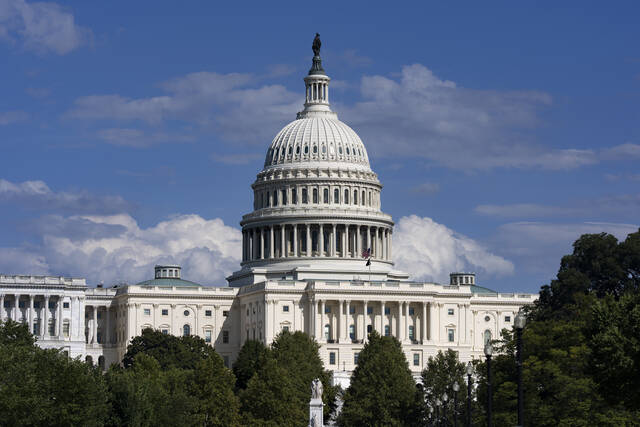While a Gallup poll this year indicated about 62% of Americans own stocks, the numbers are not quite what they seem.
Many people may have retirement money in a 401(k) or sock away savings in an investment account of some kind. Far fewer actually own shares.
Federal Reserve data says direct ownership is about 21%. Much of that can be traced to increases in apps that make it easy to buy and sell even the smallest amounts.
But financial services company Motley Fool reports the wealthiest 1% of Americans hold 50% of all stock while the bottom 50% hold 1%. That’s a graphic illustration of the distribution of wealth.
It also speaks to power. The Brennan Center for Justice puts the number of members of Congress who hold direct stocks or investment fund interests at about 95%.
Insider trading is what happens when someone uses information not available to the general public to buy or sell stocks. While this might seem innocuous, like putting in an offer on a house before it hits the market, it has broader implications.
It can manipulate the stock price and set up those retirement fund investors for a major fall. It can cripple companies or make them ripe for takeover. It can damage brands and affect the overall market.
To boil it down to a preschool simplicity, it’s just not fair.
That can be particularly so when talking about lawmakers. These are people who get their information not from whispers from a friend of a friend who heard a new product is going to market. No, these are people who may have obtained knowledge from closed-door committee hearings or advance information about government contracts.
That’s not just taking advantage of a market opportunity. It’s taking advantage of an official position. In another context, say a law enforcement officer uses information about a warrant to push for favors. That would be called official oppression, and it’s a crime. When Congress does it, there can be a shrug and a “well, what can you do?”
What we can do is make it clearly illegal. What we can do is hold our lawmakers accountable to not build up their bank accounts based on knowing what company is about to see a spike in trading or what industry is about to tank because of new legislation. This would be good for legislators who would then not face questions about their ethics in these matters.
Since 2012, lawmakers have had to disclose information about their trades. A group from both chambers and representing both parties is pushing to outright ban stock trading in Congress.
This is not bipartisan by virtue of one Republican signing onto a Democratic bill or vice versa. This is people with radically different political views standing side by side, including Sen. Josh Hawley, R-Mo., championing the idea in the Senate, while Rep. Chip Roy, R-Texas, sponsors the bill introduced Wednesday in the House with support from Rep. Alexandria Ocasio-Cortez, D-N.Y.
This is important because lawmakers from both parties have been noted as profiting from questionable trades, including former Republican senator and now Small Business Administration head Kelly Loeffler and former Speaker of the House Rep. Nancy Pelosi, D-Calif.
This is not a question of party. It’s a question of honesty, integrity and fair play. Knowing all of this first hand, passing this legislation is an inside move Congress should make.








